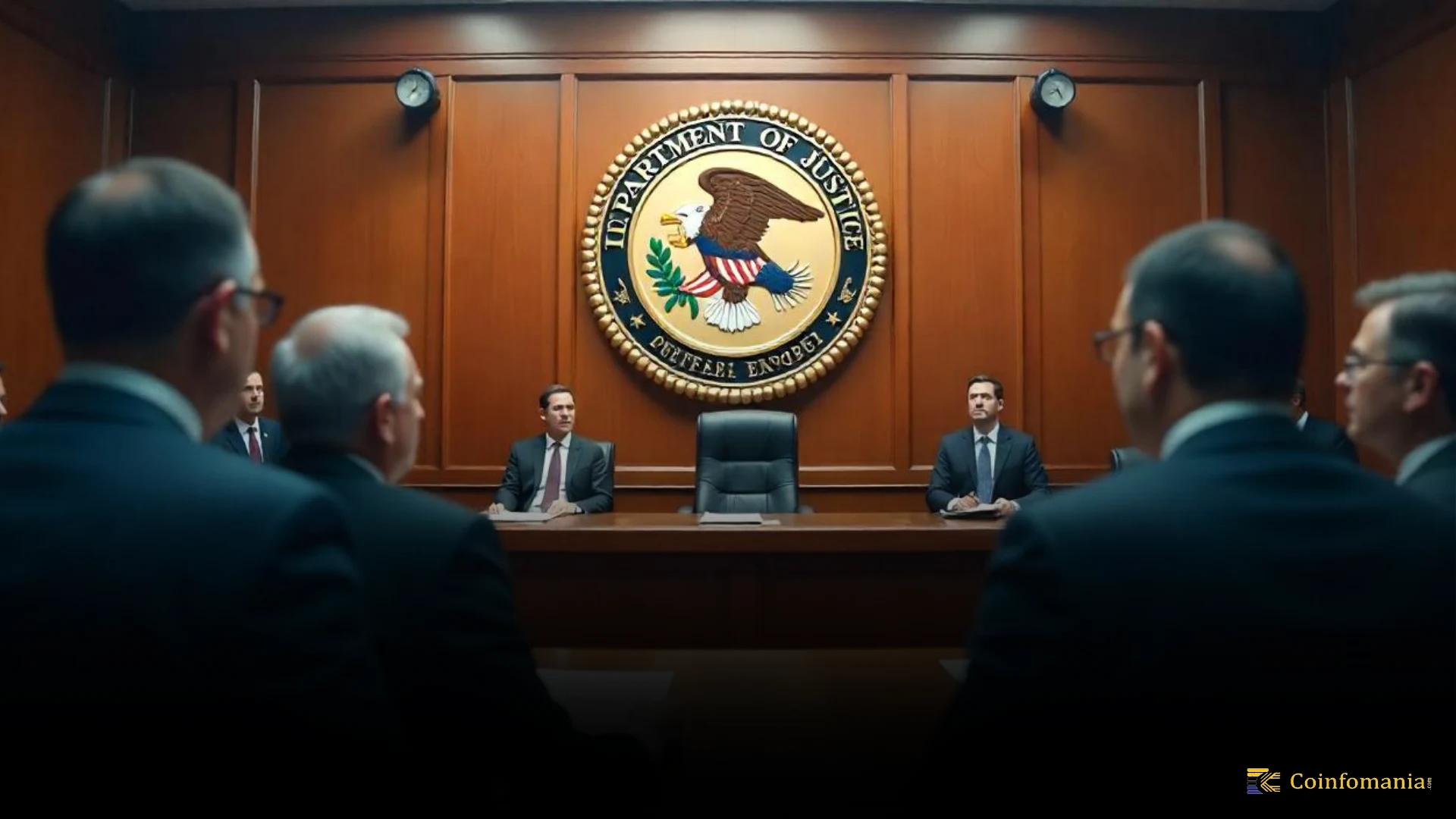DOJ vs. Crypto: 3 Major Cases That Could Change Blockchain Development
0
0

A group of 34 crypto firms urged Congress to push the Department of Justice (DOJ) to make ameds to its “unprecedented and overly expansive” interpretation on money-transmitting laws They sent a signed letter to the Senate Banking Committee, the House Financial Services Committee, and the House and Senate judiciary committees on March 26.
The document mentioned that the DOJ’s position and interpretation of unlicensed money-transmitting business indicates that “essentially every blockchain developer could be prosecuted as a criminal”, which affects blockchain developers in the U.S.
The Controversy Surrounding Tornado Cash
The controversy stems from the DOJ’s decision to charge Tornado Cash developers Roman Storm and Roman Semenov with money laundering in August 2023. The charges, the letter claims, are based on a misinterpretation of federal law that disregards previous regulatory guidance.
Storm, who has pleaded not guilty, is currently out on bail and seeking to have the charges dropped. Semenov, a Russian national, remains at large. The DOJ has also filed similar charges against the co-founders of Samourai Wallet, Keonne Rodriguez and William Lonergan Hill, who have both pleaded not guilty.
DOJ’s Interpretation Poses a Threat to Crypto Development
The signatories of the letter, which include major crypto firms like Kraken and Coinbase, argue that the DOJ’s stance could criminalize a vast number of software developers. They contend that under the DOJ’s interpretation, “essentially every blockchain developer could be prosecuted as a criminal.”
The letter explains that U.S. law defines a “money transmitting business” under two sections of the U.S. Code:
- Title 31, Section 5330 – Outlines licensing requirements.
- Title 18, Section 1960 – Criminalizes operating an unlicensed money-transmitting business.
The cryptocurrency community contends that in 2019, the Treasury Department’s Financial Crimes Enforcement Network issued guidance that categorized software developers who do not possess and do not control customer funds as not money transmitters. However, the Department of Justice (DOJ) has disregarded this guidance, using a differential application of the law in prosecuting Storm and Semenov.
Conflicting Government Positions Create Uncertainty
The crypto firms argue that the DOJ’s approach contradicts FinCEN’s guidance and creates confusion among industry participants. With “two separate US government agencies with conflicting interpretations of ‘money transmission,’” developers face legal uncertainty that could stifle innovation in the blockchain sector.
“The resulting, and very rational, fear among developers would effectively end the development of these technologies in the United States,” the letter warns.
Legal Challenges Against the DOJ’s Interpretation
The DOJ’s stance is already facing legal pushback. In January, Michael Lewellen, a fellow at Coin Center, sued Attorney General Merrick Garland, seeking a legal declaration that his non-custodial crypto software is lawful. Lewellen argues that the DOJ is stretching money-transmitting laws beyond constitutional limits by prosecuting developers who merely publish software.
The Future of Crypto Development in the U.S.
The letter underscores the urgent need for congressional action to clarify the legal landscape for blockchain developers. If left unaddressed, the DOJ’s interpretation could push innovation out of the U.S., leaving developers vulnerable to criminal liability for simply writing code.
With crypto firms and advocacy groups rallying for change, the question remains: Will Congress resolve this regulatory conflict?
The post DOJ vs. Crypto: 3 Major Cases That Could Change Blockchain Development appeared first on Coinfomania.
0
0
 Manage all your crypto, NFT and DeFi from one place
Manage all your crypto, NFT and DeFi from one placeSecurely connect the portfolio you’re using to start.





